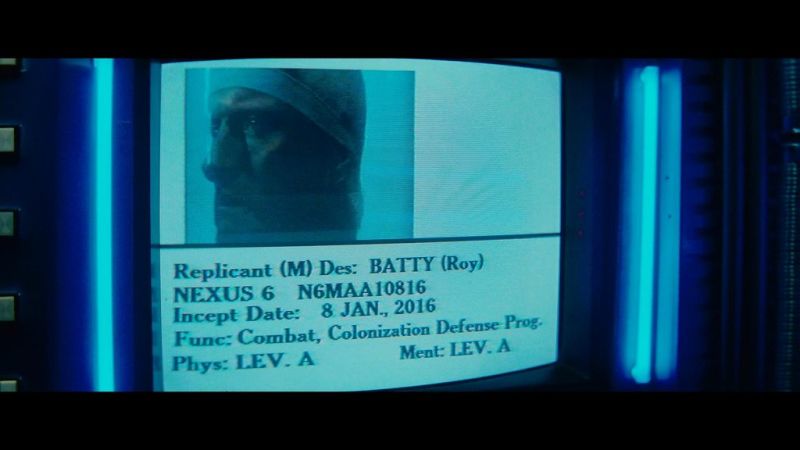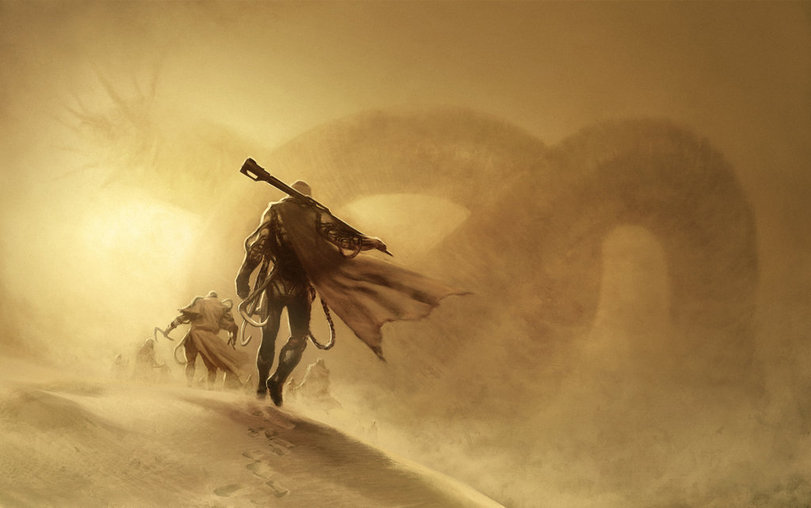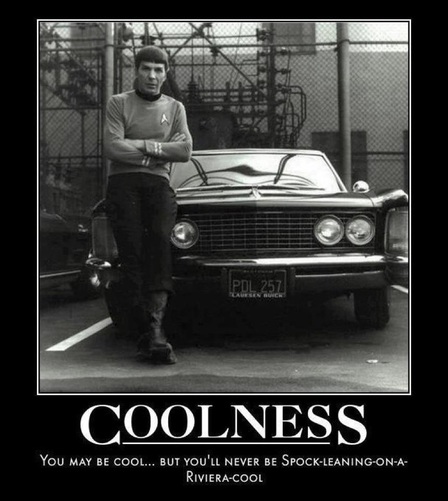|
I saw this movie a few weeks ago with my dear friend Shasta. Ever since IO9 reported that this movie was "a love story to science," I knew I would love this movie... and I... loved this movie.
I think what I liked best about that is the entire thing doesn't feel like a science fiction movie. Instead, it feels like a really great bio-pic, like Apollo XIII or Lawrence of Arabia. Also, the inclusion of "Waterloo" was a personal present made just for me.* Thank you, The Martian. *Don't ask. Lessons for Writers:
Books 1-20 Books 21-40 Books 41-60 Books 61-80 Books 81-100 100 Great Science Fiction Books 334 by Thomas M. Disch 1984 by George Orwell A Canticle for Leibowitz by Walter M. Miller, Jr. A Case of Conscience by James Blish Alas, Babylon by Pat Frank A Mirror for Observers by Edgar Pangborn After London: Wild England by Richard Jeffries A Wrinkle in Time by Madeleine L'Engle Babel-17 by Samuel R. Delaney Beggars in Spain by Nancy Kress Berserker by Fred Saberhagen Blood Music by Greg Bear Bone Dance by Emma Bull Brain Wave by Poul Anderson Brave New World by Aldous Huxley Bring the Jubilee by Ward Moore Cat's Cradle by Kurt Vonnegut Childhood's End by Arthur C. Clarke Dreamsnake by Vonda M. McIntyre Downward To The Earth by Robert Silverberg Dune by Frank Herbert Earth Abides by George R. Stewart Ender's Game by Orson Scott Card Engine Summer by John Crowley Fahrenheit 451 by Ray Bradbury Flowers for Algernon by Daniel Keyes Fourth Mansions by R.A. Lafferty First and Last Men by Olaph Stapledon For Love of Mother Not by Alan Dean Foster Foundation by Isaac Asimov Galaxies by Barry M. Malzberg Grass by Sheri S. Tepper Hell's Pavement by Damon Knight Hitchhiker's Guide to the Galaxy by Douglas Adams Hot Head by Simon Ings Hyperion & Fall of Hyperion by Dan Simmons Juniper Time by Kate Wilhem In Conquest Born by C.S. Friedman Logan's Run by William F. Nolan and Clayton Johnson Lord of Light by Roger Zelazny Man Plus by Frederick Pohl Make Room! Make Room! by Harry Harrison Mefisto in Onyx by Harlan Ellison Mission of Gravity by Hal Clement More Than Human by Theodore Sturgeon Mutant by Henry Kuttner Neuromancer by William Gibson No Blade of Grass by John Christopher Non-Stop by Brian Aldiss Nostrilia by Cordwainer Smith Oath of Fealty by Larry Nolan and Jerry Pournelle Orbitsville by Bob Shaw Paris in the Twentieth Century by Jules Verne Pavane by Keith Roberts Permutation City by Greg Egan Ralph 124C 41+ by Hugo Gernsback Red Mars by Kim Stanley Robinson Riddley Walker by Russell Hoban Roadside Picnic by Arkday & Boris Stugatsky R.U.R. by Karel Capek Slow River by Nicola Griffeth Snow Crash by Neal Stephenson Solaris by Stanislaus Lem Time Pressure by Spider Robinson The Andromeda Strain by Michael Crichton The Bite of Monsters by Dennis O'Neil The Cards of Grief by Jane Yolen The Centauri Device by M. John Harrison The Dancers at the End of Time by Michael Moorcock The Day of the Triffids by John Wyndham The Demolished Man by Alfred Bester The Disappearance by Philip Wylie The Doomsday Book by Connie Willis The Door into Summer by Robert Heinlein The Drowned World by J.G. Ballard The Drowning Towers by George Turner The Female Man by Joanna Russ The Embedding by Ian Watson The Fifth Head of Cerberus by Gene Wolfe The Forever War by Joe Haldeman The House in November by Keith Laumer The Inverted World by Christopher Priest The Left Hand of Darkness by Ursula Le Guin The Man in the High Castle by Philip K. Dick The Many-Coloured Lands by Julian May The Opuichi Hotline by John Varley The Paradox Men by Charles L. Harness The Sheep Look Up by John Brunner The Wanderer by Fritz Leiber The Unreasoning Mask by Philip Jose Farmer Up The Walls of the World by James Tiptree Jr. The Voyage of the Space Beagle by A.E. Van Vogt The Year of the Quiet Sun by Wilson Tucker Way Station by Clifford D. Simak We by Yevgeny Zamyatin What Entropy Means to Me by George Alec Effinger When the Sleeper Wakes by H.G. Wells Wild Seed by Octavia Butler Woman on the Edge of Time by Marge Piercy Your Story must say something that is important for your reader, and you must pull your reader into a real place for them to hear it.
Here's a synopsis of what I learned: The Voyage of the Space Beagle -- Clever ideas, great; great writing, even better. Paris in the Twentieth Century -- Camaraderie between characters creates affection in readers. The Opiuchi Hotline -- Background both grounds and deepens a story. Cat's Cradle -- Nothing is off-topic as long as it doesn't waste your reader's time. The Embedding -- Endings must pick up energy, not lose it. The Fifth Head of Cerberus -- Stories can have secrets not revealed. The Day of the Triffids -- Characters reflect the author's culture. Beware. The Doomsday Book -- Premise and Theme. Learn it. Love it. The Disappearance -- Events can affect emotion; emotion affects characters. When the Sleeper Wakes -- Too emotional characters don't work either. The Cards of Grief -- Write like you are there. We -- Describing human mind, heart, and soul is Story. Lord of Light -- Style must include, not exclude. Blood Music -- Flawed characters drive a story. More than Human -- Suspense is better than violence. The Sheep Look Up -- Don't create artificial situations to make an effect. Juniper Time -- Packing makes or breaks a story. The Many-Coloured Lands -- Gigantic battle scene endings can be tropes. Ender's Game -- Get out of the way of your Story. Dune -- Have something to say in sentences that are not dead. I first read Dune when I was in eighth grade. That first time I read it, when I got to the end, I flipped it back over and read it again. Then I read it again and again, once a year through my teens and twenties, perhaps twice in my thirties, and once in my forties for this "100 Great Books of Science Fiction List," and I have just read it again, at the half century mark of fifty.
I was flabbergasted by Dune when I first read it, and I am again, just now, finishing it again. Not because it isn't flawed (there are flaws); not because of the intelligent use of sense of smell to evoke reality (the spice, the smell of the sietch, the salt of Caladan's ocean); not because of the artful weaving of scenes which completely are their own creatures but create something much more cohesive and greater in my mind; not because of the powerful and realistic portrayals of women; not because of dozens of other reasons why Dune is the best book science fiction has ever produced. No, I am stunned because, for the very first time, in the first chapter I realized that Frank Herbert had to be a Buddhist. There was no way he could not be. No way... I looked it up: yes, Frank Herbert had converted from Catholicism to Zen Buddhism in the Sixties. The Catholic and Muslim overtones of Dune had always been overt, exotic, and delicious in a way other books don't seem able to embrace: but as I read on, I also realized that this book could not have have existed without this particular philosophical spine and musculature. At certain points in the book, the characters speak (and oft become) koans. I am wondering what else Dune will give to me (that I previously had no idea was there) in my future readings. When I first reviewed this in 2008 for this list (and lost the review), I remember saying that a book need not be perfect to be great. This time, I am going to lift a passage from Thomas Merton, that I read just today. (As an aside, Frank Herbert took six years to write Dune. This may be why the other books in the series do not speak to me the way Dune does. I'm thinking they must have been written much for quickly.) "In any case it is depressing that those who serve God and love Him sometimes write badly, when those who do not believe in Him take pains to write so well. I am not talking about grammar and syntax, but about having something to say and saying it in sentences that are not half dead. ...Imperfection is the penalty of rushing into print. And people who rush into print too often do so not because they really have anything to say, but because they think it is important for something by them to be in print. The fact that your subject may be very important in itself does not necessarily mean that what you have written about it is important." Thank you, Thomas Merton. And thank you, Frank Herbert. Thank you so much. I have read Ender's Game many times since it was first published, but I was worried about reading it this time. I've seen the author twice at readings, and have always been thrilled by his brilliance and charisma, but his pugnacious attitude toward what is right and wrong has worn thin on me, as it has on so many. And there was the movie two years ago -- with its albeit flubbed ending -- that was in whole so gorgeous that it was a religious experience to watch. And just last month, one of the young tourists I met in Ireland said she had seen the movie, and tried the book, but it was just like the movie, so she wasn't going to bother.
I was worried. The story of Ender's Game, a brilliant six-year old shipped off to space to train as a military commander, is as compelling as it ever has been. It is an important story, and I think both its years and my own have not tarnished its need to be required reading. Many people, Card included, have tried to analyze what makes this story great, but I think they all are, myself included, are wrong. Card feels that the character of Ender speaks to everyone who feels like an indentured pawn in the world, and we are legion. I remember when I reviewed this last (that review was lost), I felt that that the themes of "Excellence is the only authority" is such a cruel and inhuman standard that you cannot help but feel compassion for those crushed under its mandate. So this time? For writers especially? For writers. A Real Story transcends everything you know about writing and what you want to happen. At a certain point, you just have to listen to what the Story is telling you, and write it down. I thought I could see this happen in this book -- after a few chapters, I felt the author get out of the way of the Story. Chip Delaney put it in strident terms: "You cannot master your Craft: you can only Submit to your Craft." Naomi Shihab Nye put it a kinder way: "Believe in the work that is coming through you." Listen to the Story. If nothing comes, just be patient. It may insert itself while you are writing down words.  In the year 2050, a one-way worm hole provides an escape route for disgruntled humans back to the Pliocene. They are immediately enslaved upon their arrival -- by elfish aliens who have also settled there.. The only thing I remember from my original 2008 review of this book was that the Pliocene served as a basic backdrop for this story, and not much more: that still stands. For this reading, I found this book was too long and paced too slowly, which I am sure continues with the remaining two books in the trilogy, The Golden Torc and The Nonborn King. This is a quest, so I think it is written strongly, but the genre throws me off, even clothed in science fiction rather than fantasy. Julian May, born in 1931, had written a lot of series, and is still writing! I think the gigantic battle-ending on many stories (including ones I've written) is not needed, and gets to be too much of a trope. I spared myself this time and skimmed through the last twenty pages. Why, oh why could I not find a book for #98? It’s really the last book I had to choose, because #99 will be Ender’s Game and #100 will be Dune. My original choice was Tim Powers’ The Anubis Gates – because fellow Clarionite Stephen Gaskell literally gave me the book out of his hands when I expressed completely ungracious horror at the thought of receiving another copy of Octavia Butler’s Wild Seed – but that book about time travel is really more of fantasy, and the convoluted sentences were throwing me. I cracked open a book Chris had bought, The Child Buyer, but I don’t really have the wherewithall to read a book written as a congressional transcript.
So, I found myself cruising the internet searching for a last book. A book about the moon? I haven’t read any moon books in this entire list, which is odd really. What about that Moon story I loved as a little kid? What was the title? I don’t remember, and I can’t find it. John Christopher? The White Mountains trilogy? Rats, I already read him! Richard Sawyer? Venus of Dreams? Darwinia? One of the authors I’ve already passed up, like David Brin? No, no, no. Oh my, cruising around, realizing the weight of this last book, like it is some immense choice, like it has to sum up everything that has transpired, like I will never read science fiction again. I hit an old internet “Best 100" list and saw an author I had never noticed before, named Julian May. Who is he? Wikipedia: she was born in 1932, wrote thousands of articles for World Book, wrote hundreds of stories, quite a few science fiction books, and was loyally involved in the World Con community: a true, working writer who never really broke away from the pack. Someone like the rest of us. So when I had finally given up looking for the perfect book for this spot, I found it. I ordered it with the dread Amazon One-Click I am giddy with expectation. Oh, and thank you, Stephen Gaskell ... This is an aside because, although I did read all 100 books between 2005 and 2008, I had a computer malfunction that meant I could only find an old document, which was missing the reviews of the last three books. So... although I am actually on Book 41 of the Fantasy List, I will take this next month to read The Many-Coloured Lands, Ender's Game, and Dune, so that this list is finally complete. It's a perfectly wonderful way to spend the holiday months, I assure you. The cover of this book was intriguing and wistful, and I could just make out the name of the artist: Gerry Daly. He also did the cover for A.E. Van Vogt’s The Space Beagle. (It then dawns on me that I was never curious as to what “A.E.” stood for, because I wasn’t too thrilled with the book. Alfred Elton, in case anyone was wondering.)
Juniper Time is about linguistics, drought, Native Americans, aliens, and a collapsing society with barrio “New Towns” that are as chilling as anything I’ve read. There is a nod to East Lansing, because of Kate Wilhelm’s involvement with Clarion. I really liked the pacing in this book, except for the last two chapters, which were very rushed. I thought at times this book took itself a little too seriously, even with the dystopic themes at hand. Everyone’s life has a light moment here and there. I think pacing is going to be a real challenge in my next book, trusting my story and characters and not rushing them too much. This book showed both great and poor pacing, and speed definitely detracts. But if you’re too slow, the book bogs down. It’s a quandary. Kate Wilhem is a such a powerful writer. Visit her here. |
This Page
|






 RSS Feed
RSS Feed